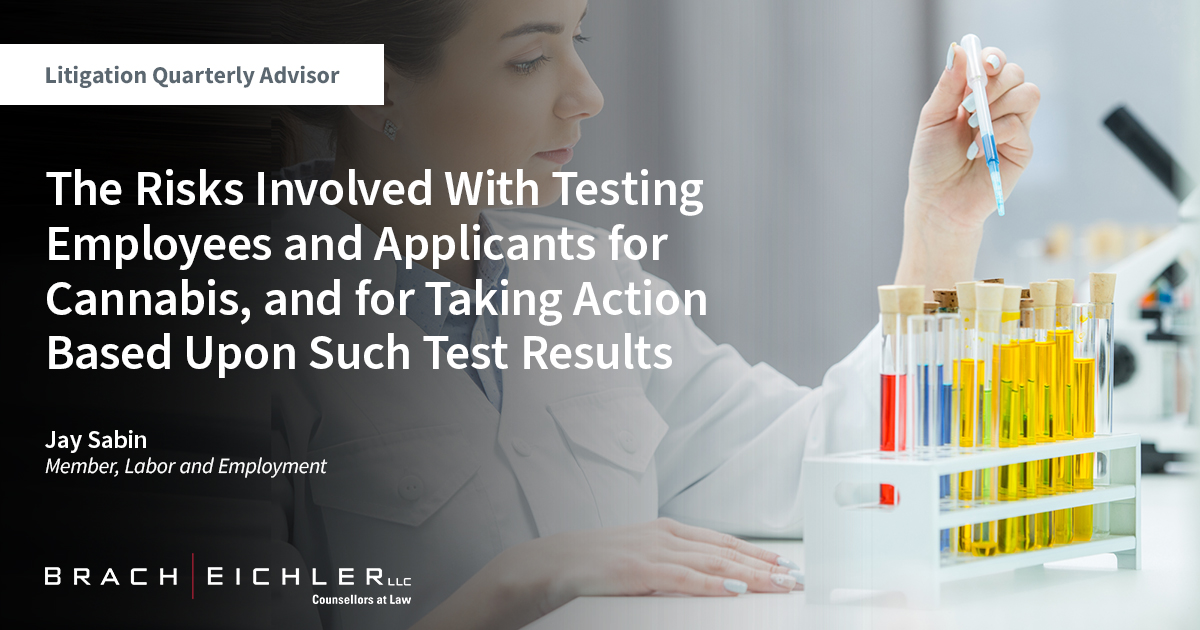The Risks Involved With Testing Employees and Applicants For Cannabis, and For Taking Action Based Upon Such Test Results

July 10, 2023
Advances in drug testing have been in the news lately, particularly for New Jersey employers. In February, New Jersey’s highest court favorably received a special master report that concluded, that although a test of bodily fluids cannot scientifically identify whether the person is impaired from cannabis use, a properly trained “Drug Recognition Expert” applying a twelve-step protocol could reliably determine whether a person is impaired. (The case is actually still open, as the special master has been directed to use a slightly different formulation to determine the admissibility of such evidence in civil and criminal actions.) In May, the U.S. Federal Motor Carrier Safety Administration formally approved the use of saliva to test for the presence of prohibited drugs, including cannabis, among regulated truck drivers. One of the great advantages of saliva testing, as compared to urine testing, is that a saliva test will generally detect cannabis within the past 24 hours whereas urine samples detect cannabis use generally during the prior 3 to 67 days.
Sounds like cannabis testing should be in a New Jersey employer’s wheelhouse. Not so fast. New Jersey’s 2021 law legalizing adult use of cannabis contains two critical prohibitions. First, employers may not test for cannabis without first conducting a “physical evaluation in order to determine an employee’s state of impairment” done by a person officially certified as a “Workplace Impairment Recognition Expert.” No such person yet exists because the New Jersey Cannabis Regulatory Commission has yet to establish the standards for such certification. Second, no “adverse action” may be taken against an employee “solely due to the presence of cannabinoid metabolites in the employee’s bodily fluid from engaging in conduct permitted under” the adult cannabis use law. Recently, a federal judge applied this latter principle in opining that an employer could not legally terminate an employee solely based upon drug test results showing cannabis use. There are exceptions to these principles for employers required to test for cannabis by federal regulation (such as a commercial motor vehicle operators) or pursuant to federal contract.












